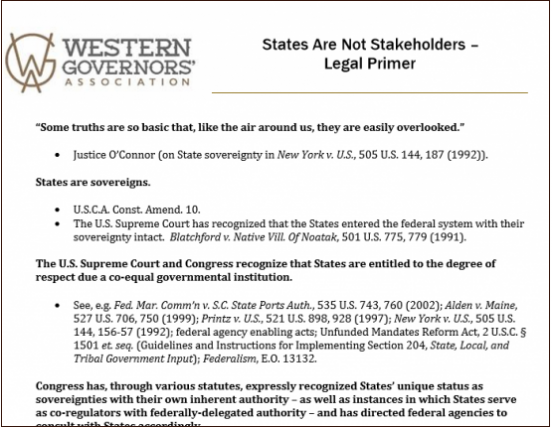
This document provides the legal bases why states should be treated as co-sovereigns by federal agencies and officials, meriting government-to-government consultation, and not as mere stakeholders or members of the general public.
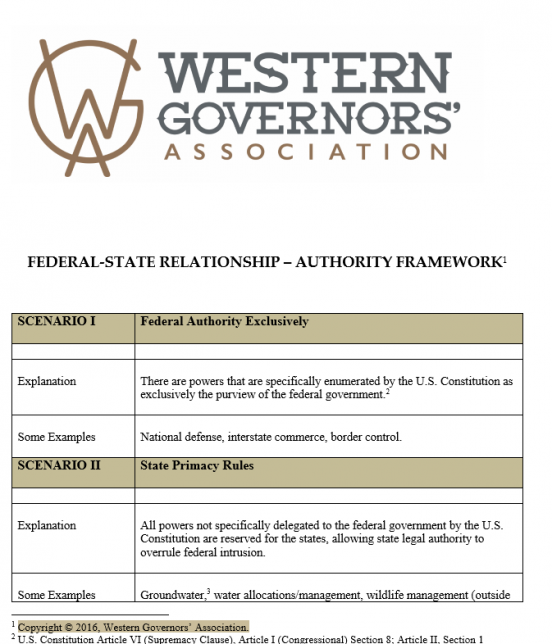
The context in which the state-federal relationship manifests is variable, and specific circumstances determine the appropriate interaction between state and federal officials. This document details the “flavors” of the state-federal relationship, including primary state authority, delegated authority, exclusive federal authority and shared authority.
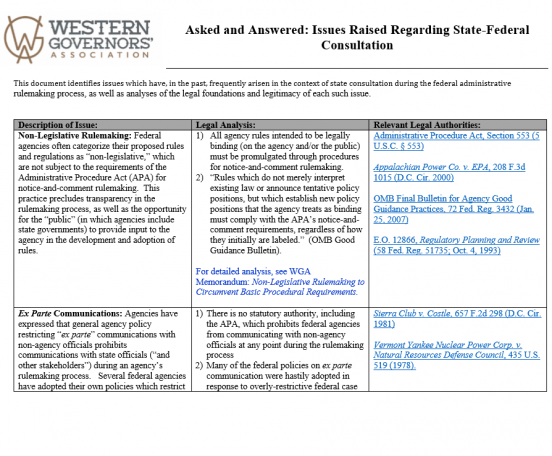
Federal agencies often assert that they cannot engage in meaningful, substantive consultation with states for legal or other reasons. This WGA analysis examines some of the common reasons provided by agencies to forego consultation with states – most of which do not have a basis in law.
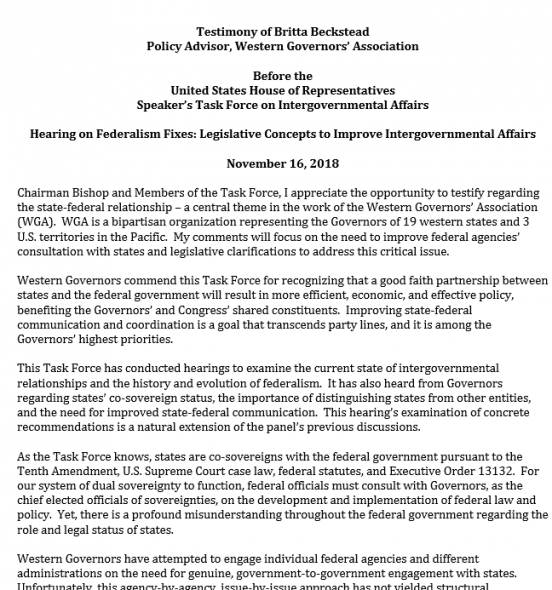
WGA's testimony on Nov. 16, 2018 before the Speaker’s Task Force on Intergovernmental Affairs focused on the need to improve federal agency consultation with states and legislative clarifications to address this critical issue. These clarifications include identifying basic elements of effective state-federal consultation and eliminating perceived barriers to consultation.
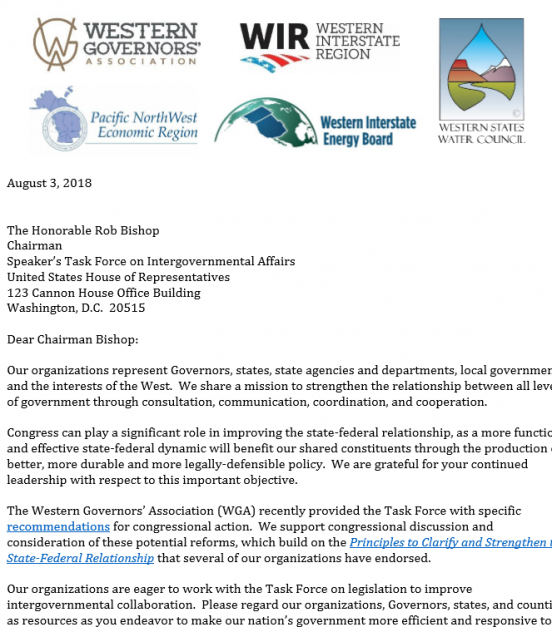
Congress and federal agencies can take concrete steps to strengthen the state-federal relationship. This 2018 document contains recommendations for statutory changes developed by WGA, the Western Interstate Region of the National Association of Counties, Pacific NorthWest Economic Region, Western Interstate Energy Board, and the Western States Water Council for the Speaker’s Task Force on Intergovernmental Affairs.
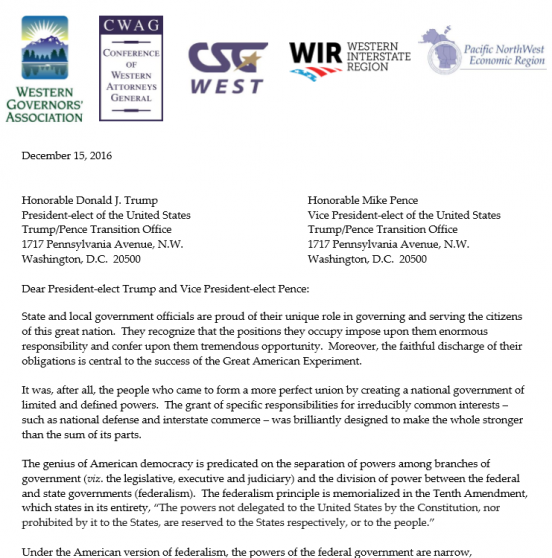
WGA collaborated with leading policy associations to develop these principles, which call for a true partnership among state, local and federal government officials. WGA’s partners include the Conference of Western Attorneys General, Council of State Governments West, Western Interstate Region of the National Association of Counties, and the Pacific NorthWest Economic Region.